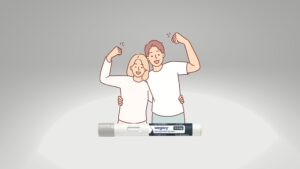FROM FIESTA… TO SIESTA!
With upcoming holiday dinners and events involving food, many of us will be all too familiar with the ‘food coma’. That uncomfortable feeling of being so full after a meal all you can manage is migrating from the kitchen table to the couch which ends in a nap. Taking a nap after meals is a common practice in many places around the world, especially in warmer climates.
Ever hear of the term siesta? Since so many of us have experienced this I was curious what the reason for it was. To my surprise there isn’t conclusive evidence or even one theory everyone could agree on, so here are some of the myths and theories I have come upon:
- Turkey has a lot of tryptophan. Tryptophan, when it enters the brain, gets converted to serotonin which then can get converted into melatonin. Melatonin helps us get to sleep and stay asleep. But interestingly turkey actually has less tryptophan than other foods like salmon, pork and chicken so based on that we should be going down for a nap after most of our meals.
- Blood gets redirected from the brain and other organs to the intestines to help with digestion of food. With less blood supply to the brain – we start to feel more sleepy! The blood used for digestion actually comes from the skeletal muscles and not the brain. The brain is a very selfish organ and makes sure there are always enough resources available for itself before any other part of your body. Do not fret!
- We have chemicals in our brain called orexins (neuropeptides) which help with alertness, wakefulness and our ‘excited’ state. There is some evidence showing when sugar (glucose) levels go up in our bloodstream, the levels of these orexins go down – contributing to our alertness also going down. Our blood chemistry is very complex, this might just be one of the many factors which contribute to our sleepiness.
- It only happens with meals high in carbohydrates. It can happen with meals which are high fat or protein as well. There are no villains on the dinner table.
- Our parasympathetic nervous system (rest and digest) gets activated to help us digest our food. And our sympathetic nervous system (fight-or-flight) takes a backseat for a while. As we focus on digesting what we ate (which is a lot in this case), our body slows down. If you are running away from a lion you wouldn’t be worried about digesting your lunch, which makes sense. This big shift towards the rest and digest state has more to do with how much you ate versus what exactly you ate.
If you’re looking for ways to minimize these effects you can use some of the tips we had in our previous blog – read it now – otherwise, you can enjoy your dinners fully, and share some of these fun facts at the table and sound like a genius.
By Ivana Anusic






